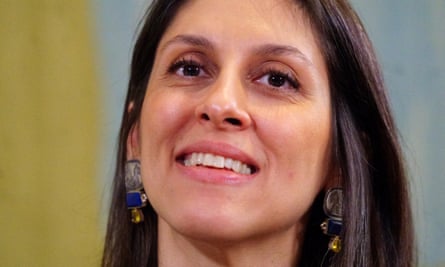Boris Johnson appeared to accept advice while foreign secretary that payment of the £400m debt to Iran must not be linked to the release of the British-Iranian dual nationals, according to evidence given to MPs by his Middle East minister.
Alistair Burt also told the foreign affairs select committee that he wrote to Johnson in May 2018 urging him to ask the then prime minister, Theresa May, to overrule objections to payment of the debt being made by the Ministry of Defence. Burt said he asked Johnson to break the logjam after conversations with the then defence secretary, Gavin Williamson, about the MoD’s objections.
Burt had been given to understand that the department would accept a ruling from No 10. It is understood that he does not know if Johnson acted on his advice by asking the prime minister to intervene.
The revelations have the potential to damage the prime minister since they suggest Johnson might have misjudged the link between the failure to pay the debt and the continued detention of the British Iranian dual nationals Nazanin Zaghari-Ratcliffe and Anoosheh Ashoori.
Last Friday, Zaghari-Ratcliffe accused Johnson of casting a shadow over her by mistakenly telling the foreign affairs committee that she had been training journalists in Iran at the time of her arrest in 2016.
The inquiry was set up at the request of the now released detainees who believe ministers have not revealed the true source of blockage within Whitehall about delays to the payment of the debt, including whether America played a role, or there was a broader refusal to prioritise their release.

Zaghari-Ratcliffe and Ashoori were released two months ago as soon as the £400m debt arising from an arms sales deal in the 1970s was paid. Burt, the Middle East minister between June 2017 and March 2019, said the officials’ consistent advice had been not to link the debt and the plight of the detainees. He said Johnson’s position had been to accept that advice although he added his views may have evolved.
Giving evidence to the same committee, the former foreign secretary Jeremy Hunt said the British state could not look back on its handling of the case with any pride since it took far too long to secure the dual nationals’ releases. He accepted his own share of the blame for that failure, but in his own description of events seemed unable to pinpoint the main source of objections to the payment inside Whitehall. He said a “terrible injustice was done to our citizens and we took too long to sort it out”.
Burt also disclosed that at the UK’s request the then Iranian foreign minister, Javad Zarif, had writtento the Foreign Office in November 2017 saying the debt could be paid in a humanitarian form of food and medicine. Zarif said the debt did not need to be paid to a sanctioned entity of the Iranian Ministry of Defence, to whom the debt was owed, but to the central bank of Iran.
Zarif also gave a commitment that the money would be used only for civilian purposes, and not to buy arms. Zarif’s letter was intended to help Britain get round the possibility that the payment would be sanctioned by the US administration.
Hunt said he had personally concluded between a visit to Tehran in November 2018 and spring 2019 that “one thing and one thing only” – the payment of the debt – would lead to the detainees’ release.
Hunt in his evidence said it was a real diplomatic failure that a 40-year-old debt had been allowed to fester. Both Burt and Hunt said the payment was not a ransom, but a settling of a unique and historical debt.









